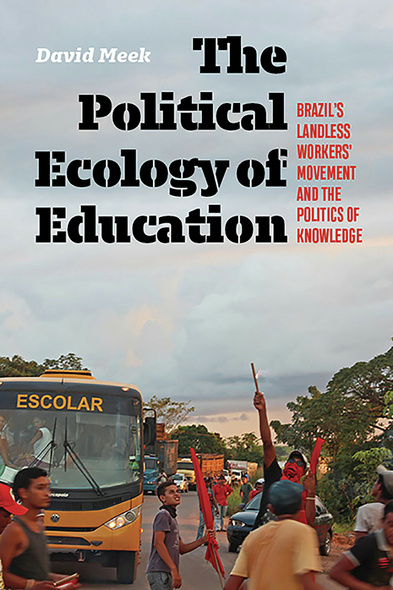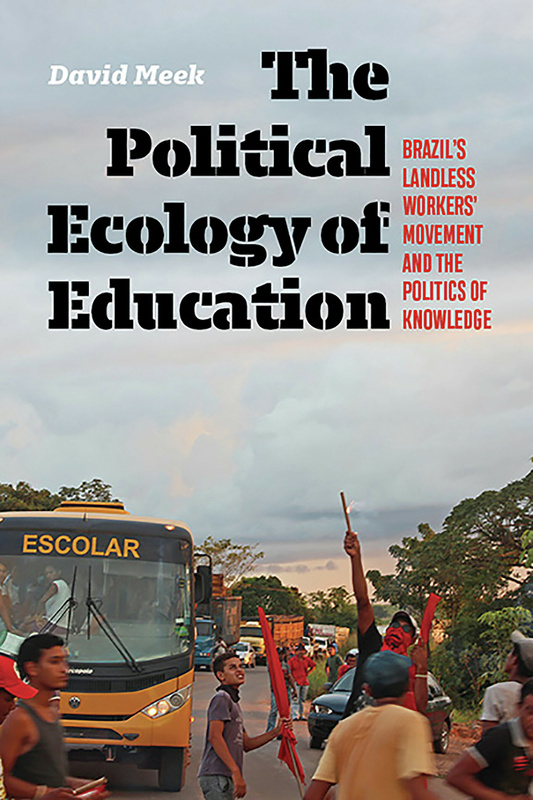
252 pages, 6 x 9
24 B&W images, 4 maps
Paperback
Release Date:01 Nov 2020
ISBN:9781949199765
The Political Ecology of Education
Brazil's Landless Workers' Movement and the Politics of Knowledge
By David Meek
SERIES:
Radical Natures
West Virginia University Press
Agrarian social movements are at a crossroads. Although these movements have made significant strides in advancing the concept of food sovereignty, the reality is that many of their members remain engaged in environmentally degrading forms of agriculture, and the lands they farm are increasingly unproductive. Whether movement farmers will be able to remain living on the land, and dedicated to alternative agricultural practices, is a pressing question.
The Political Ecology of Education examines the opportunities for and constraints on advancing food sovereignty in the 17 de Abril settlement, a community born out of a massacre of landless Brazilian workers in 1996. Based on immersive fieldwork over the course of seven years, David Meek makes the provocative argument that critical forms of food systems education are integral to agrarian social movements’ survival. While the need for critical approaches is especially immediate in the Amazon, Meek’s study speaks to the burgeoning attention to food systems education at various educational levels worldwide, from primary to postgraduate programs. His book calls us to rethink the politics of the possible within these pedagogies.
The Political Ecology of Education examines the opportunities for and constraints on advancing food sovereignty in the 17 de Abril settlement, a community born out of a massacre of landless Brazilian workers in 1996. Based on immersive fieldwork over the course of seven years, David Meek makes the provocative argument that critical forms of food systems education are integral to agrarian social movements’ survival. While the need for critical approaches is especially immediate in the Amazon, Meek’s study speaks to the burgeoning attention to food systems education at various educational levels worldwide, from primary to postgraduate programs. His book calls us to rethink the politics of the possible within these pedagogies.
The Political Ecology of Education is a revelation. By focusing our attention on the role of critical food systems pedagogy in enacting food sovereignty in the most important social movement in the world, David Meek’s book offers a new and vital contribution to political ecology and agrarian studies.’
Bradley Wilson, West Virginia University
This extraordinary book is about nothing less than survival: the survival of workers, communities, and the landscapes that they call home in the Brazilian Amazon. Meek weaves together beautifully written ethnography with a brilliant analysis of agricultural political ecologies. This is a must-read for all of us who care about rural communities and sustainable futures.’
Paige West, Columbia University
David Meek is an environmental anthropologist, critical geographer, and food systems education scholar with area specializations in Brazil and India. He is assistant professor of global studies at the University of Oregon.
Acknowledgments
Part I: Conceptions of the World
1. It Wasn’t Supposed to Be This Way
2. The Struggle on the Land
3. Space Wasn’t Easy
4. To Stay, or to Leave?
Interlude
Part II: Terrain of Ideologies
5. Communities of Praxis
6. Fences around Knowledge
7. Learning through Movement
8. Revisiting Territory
Epilogue
Notes
References
Index
Part I: Conceptions of the World
1. It Wasn’t Supposed to Be This Way
2. The Struggle on the Land
3. Space Wasn’t Easy
4. To Stay, or to Leave?
Interlude
Part II: Terrain of Ideologies
5. Communities of Praxis
6. Fences around Knowledge
7. Learning through Movement
8. Revisiting Territory
Epilogue
Notes
References
Index




